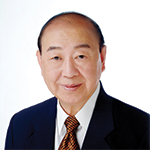

On March 23, 2012, a young rheumatologist was stabbed to death by one of his patients. The 28-year-old doctor was just beginning his career and was set to accept a PhD position at a prestigious institute when his life was cut short.1 This event may come as a shock to many, but unfortunately, this is just one of countless attacks on medical personnel that occur almost every day in China.2 In a single year, it was estimated that 10,000 medical personnel were physically injured by patients, and in the past decade, 11 health professionals were killed. Alarmingly, an online survey found that 65% of the participants approved of the assailant’s actions.3
A Troubled Relationship
The doctor–patient relationship in China is rapidly deteriorating.4 The time and care that a doctor is able to devote to every patient is limited.5 Hence, communication is greatly strained, and essential elements such as trust and understanding are missing. Nevertheless, Chinese doctors are still confident that everything will be better in the future. In addition, the inequitable distribution of medical resources creates major obstacles for providing ideal clinical care. Forty percent of the urban population and 72% of the rural population are still without medical insurance, and the high costs of medical care can lead to dissatisfaction and even violence among patients. Doctors also experience frustration when they do not receive the anticipated monetary or emotional gratification, thus straining the relationship even further.
Government policies may be partly to blame for this critical situation.6 Recently, the Chinese government declared that it would set guidelines on patient interaction for doctors. It also promised to increase the funds allocated for healthcare, bring down drug prices, and raise doctors’ salaries.7 These measures have yet to be put into practice and may not be sufficient to correct the problem.
What China’s Rheumatologists Can Do
Instead of being silent bystanders to these attacks and waiting for the authorities to respond, Chinese physicians can get involved. One such step in that direction is the Chinese Rheumatology Information System (CRIS), which has been conceived by a group of motivated and dedicated Chinese rheumatologists. Since its inception in August 2011 as the Chinese SLE treatment and Research group (CSTAR), this database has been gradually expanding and gaining popularity among rheumatologists all over China. It currently encompasses three conditions—systemic lupus erythematosus, rheumatoid arthritis, and systemic sclerosis—with efforts underway to sequentially include all the rheumatologic diseases.

